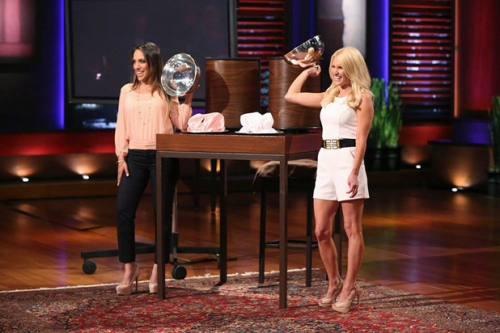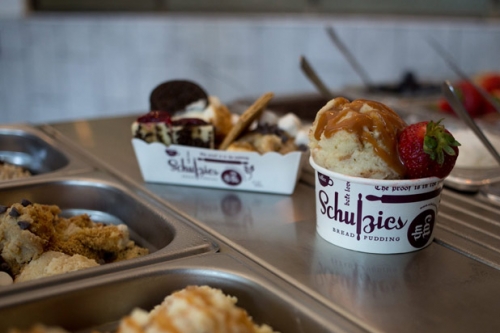Shark Tank Season 5: Food Pitches Funded And Not Funded
From a modernized chef's hat to a reinvented lunchbox, or a de-boned baby back rib "steak" to cookie dough that's safe to eat right out of the jar, ABC's Shark Tank saw a whole host of food products ranging from the mundane to the ridiculous pitched to investors in its fifth season, which recently wrapped up. We've assembled a list of 10 of the most intriguing food-related products that were pitched this season, and it's fascinating to see which products receive funding and which ones don't.
Shark Tank Season 5: Food Pitches Funded and Not Funded (Slideshow)
Reality television was taken to a new, entrepreneurial level with the launch of the series in 2009. The show is a platform for budding entrepreneurs, many of whom happen to be in the food business, to pitch their products and businesses to a panel of "sharks," who are often well-known, self-made multimillionaire investors.
The popular TV series is produced by Mark Burnett and modeled off a Japanese reality show, Dragon's Den. The concept is one where entrepreneurs present an hour-long pitch (which is then edited to a much shorter, action-packed clip) to the panel of investors. The investors can ask questions and potentially poke holes in the entrepreneurs' business model. If a "shark" is interested, they can make a bid to invest in a particular business. If the panel decides to pass, the entrepreneur goes home empty-handed.
Many of the episodes also follow the progression of businesses that have been funded in the past by the show's "sharks," which have included famous investors such as Mark Cuban, the "queen of QVC" Lori Greiner, Barbara Corcoran, Robert Herjavec, and Kevin Harrington. In 2012, the show soared in popularity, with seven million viewers per episode on average, and received an Emmy nomination for Outstanding Reality Program and a nomination for a Critics' Choice Television Award for Best Reality Series.
Typically, entrepreneurs are not funded as easily as the show portrays. The process of creating a marketable product or idea and then getting the necessary funding from investors to logistically get the product/business off the ground can be a grueling and often futile process. For small start-ups, particularly those that are under the $10 million threshold, there are very few investors who are willing or interested in investing in a food venture. To get a successful business off the ground, the inventor has to have product opportunity, a true interest from the market in the product, and a strong management team behind it to see the business through, which is certainly a tall order.
What makes the show so wildly successful is that it vets the entrepreneurs and products ahead of time, matchmaking them and putting them in front of the U.S.'s most successful business tycoons. While the show follows these budding entrepreneurs through the pitching process, it also follows them down a longer path, seeing if they achieve financial and commercial success after receiving the capital they asked for.
Some Shark Tank alumni like Jonathan Miller from Chicago, who founded a company called Element Bars, have seen spikes in the growth of their businesses since appearing on the show. Pork Barrel BBQ, who teamed up with Corcoran to fund the business, has achieved great success. The company's products are being carried nationwide in stores like Costco, Safeway, and Whole Foods.
Read on to learn about 10 products that appeared on season five of Shark Tank and to see if they received funding or not.
Kook'n Kap

This modernized chef's hat was invented by two friends from Los Angeles. The hat was designed to be comfortable, chic, breathable, non-flammable, and keeps the smell of food out of the wearer's hair. Not only does it keep the smell of food out of your hair, it also keeps hair out of your food!
Funded? No
Schulzies Bread Pudding

Schulzies has taken the old-fashioned favorite dessert, bread pudding, and reinvented it in 108 different flavors. All of the puddings are also served chilled.
Funded? No